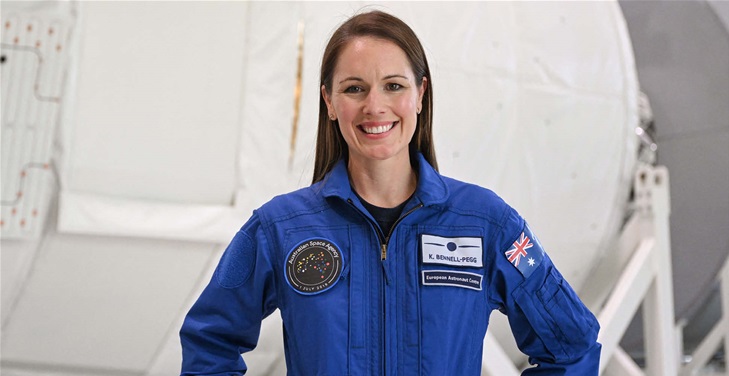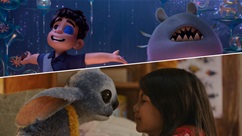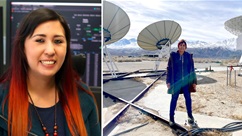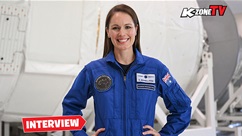KZ: Hi Katherine! Congratulations on graduating and becoming an astronaut this year! Do you have any advice for K-Zoners who want to be an astronaut?
K: I would say, go for it, it is absolutely a legitimate dream to have. If anyone says you can't, use that as fuel to progress. While it's unlikely, pick a career that you would love anyway, so the fallback option is a wonderful life. For kids that want to be astronauts, work hard at school, because if you work hard, more doors open for you. You don't have to be top of your class, but just do your best and you set yourself up well. Do extra curricular activities on the side as well, mostly team ones to build on your character and knowledge about yourself. Push yourself out of your comfort zone, and learn how you react in those environments. That will help prepare you for an astronaut call one day, perhaps in your future.
KZ: When did you realise your love for space, and when did you decide to wanted to become an astronaut?
K: I remember that as a kid I was just curious about the world around me, particularly I liked looking up at the stars through binoculars. When I realised that some of those stars were planets waiting to be discovered, that draw to go and be one of the explorers out there was in my bones, I think. When I grew up and became a teenager, I really got excited about what space could do for discovery, to learn things we've never learned before as humans. I said in my Year 8 careers counselling session that I wanted to be an astronaut, and so my school and my parents said, 'Okay, well go figure out what that would take', probably thinking I'd see some sense and how unlikely it was. But actually, what I learned is that to become an astronaut, you can have a career first in almost any STEM field, including being a pilot or a doctor. You find something that you're passionate about - and that may change over time - you find something that you really enjoy, and then you're more likely to do well in it. Then you have the chance to hopefully apply to be an astronaut. It's more than just doing well at school. Yes, you need to try hard at school, because if you do well, more doors open for you. It's also just as important to work on your character, and be well rounded through extracurriculars, particularly team activities, like sports, expeditions like camping, musicals, drama, whatever it is that you like - do both. Don't just focus on the academics, it's a well-rounded person that's more likely to have the chance as an astronaut.
KZ: You will be an iconic figure to so many across Australia and the world for this achievement. Was there anybody that you looked up to as a child in any part of the space industry?
K: I was inspired by two Australians that went to space as astronauts when I was a kid representing the US, but nonetheless, Australians, so Paul Scully Power and Andy Thomas. I remember Andy Thomas coming to my university and speaking to us and I was up the back of the lecture hall and so encouraged by what he had to say. I also had a quite a few books on a women who were astronauts and early aviators like Amelia Earhart and so on. That was really interesting for me to understand their journeys and how they got to where they were.
KZ: What is the process from this point after graduating, to travelling into space?
K: Having graduated and becoming an astronaut, that means I'm spaceflight ready to be selected for a mission to the International Space Station or even the moon, which is 'pinch me' stuff. I am now in the phase which is called Pre-Mission Assignment phase. In that phase, we maintain our knowledge, keep up our health and fitness, and do extra training when we can to progress, like more spacewalk training, more robotic arm training on the outside, more emergency medical procedures, and so on. You also have a day job. As an engineer, I'll be doing some good work for the Australian Space Agency as well. Should I be assigned a mission, it can be anywhere between six months and two years before you fly. At the same time, you're preparing to fly with the crew that you meet and preparing the exact things you'll do, the capsule you'll be in, and so on. Your country is developing you know a science program to accompany you, an education program so that schools can be involved in the classrooms of what you're doing in space, in PE lessons with what you're doing in sports in the space station, and a whole load of other activities.
Watch Katherine Bennell-Pegg shout out to K-Zoners, and watch Katherine discuss becoming the first astronaut under the Australian flag!
To read the main interview with Katherine Bennell-Pegg, grab the October 2024 'Get In The Game' issue of K-Zone, on sale now!










Comment Now!